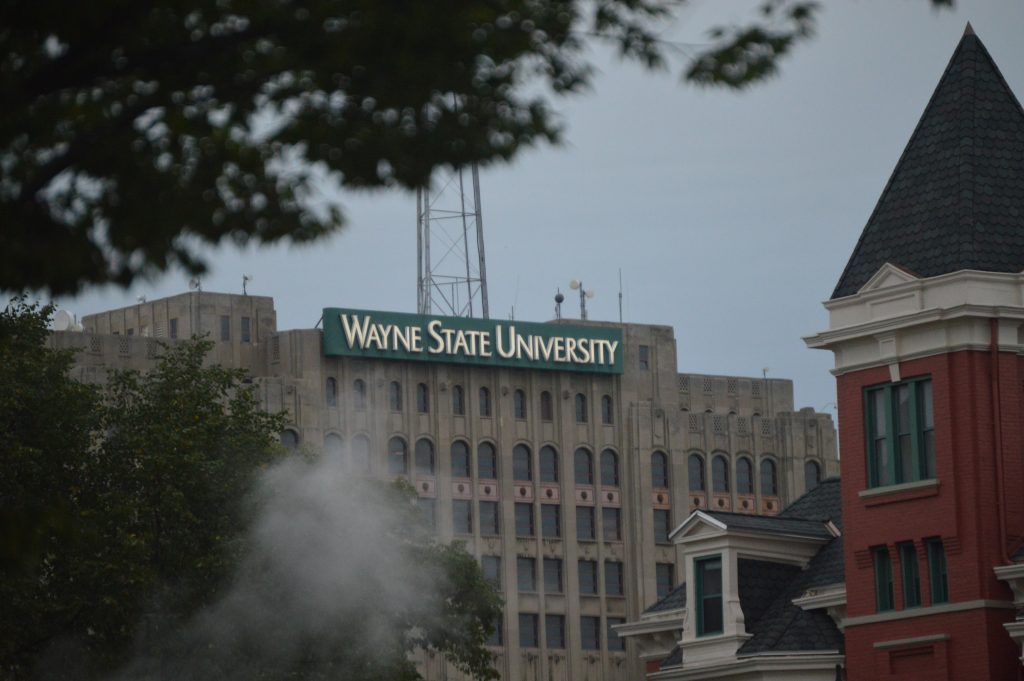Whitmer Considers Using Little-Known Power to Remove Wayne State Officials
Governor Gretchen Whitmer says she might try to remove members of Wayne State University’s Board of Governors.

Editor’s Note: Wayne State University holds WDET’s broadcast license and WDET staff are employees of WSU.
The in-fighting on Wayne State University’s Board of Governors could force Gov. Gretchen Whitmer to intervene in a drastic way.
Four of the eights members of the board recently voted to fire WSU President M. Roy Wilson citing actions he took without notifying the board. The university says that vote is not legitimate and Wilson is still in the job.
It’s the latest of many incidents involving two warring factions on the Board of Governors.
Now, Chad Livengood of Crain’s Detroit Business reports that Whitmer is “looking into” whether she could remove members of the board for creating a toxic atmosphere on the board.
Livengood also discusses why Michigan is one of the few states who govern some of its public universities with publicly elected boards and what that means, the immense power that universities and their boards hold, and whether there’s any appetite at the state Capitol to overhaul the way the state governs its universities.
Click on the player above to hear Chad Livengood talk about the situation at Wayne State and explain the governor’s powers to remove elected officials on MichMash.
Can she do that?
Yes, says Livengood.
“Our state constitution does create the power for the governor to initiate a procedure to remove officials from public office,” he tells MichMash hosts Jake Neher and Cheyna Roth.
It’s rare, Livengood says. But it’s not unprecedented. He’s not aware of this process taking place at the university board level under the current state constitution, but points to an example many Michiganders know quite well.
“Most people will remember the most recent major high profile attempt to remove an elected official was in 2008 when then-governor Jennifer Granholm initiated the proceedings to remove Detroit Mayor Kwame Kilpatrick from office.”
Why take this step at Wayne State and not Michigan State?
“It is certainly a fair point if you look at the chaos that has ensued on Michigan State’s board,” says Livengood.
That’s referring specifically to the chaos on MSU’s Board of Trustees in the wake of the Larry Nassar sex abuse scandal.
Livengood says he didn’t ask the governor about that situation when he spoke with her about Wayne State recently. But he says there seems to be just as many reasons to step in at MSU, if not more.
“Nobody at the board level [at MSU] really has been held to account,” says Livengood. “That would seem like a lot of people would say, ‘Wait, let’s go clean house at MSU before we go to Wayne State.'”
Why does this matter to people without connections to Wayne State?
When elected officials are behaving in a way that does harm to their constituents and/or disqualifies them from holding the office they are currently holding, the more common ways to get rid of them are either through a recall effort or by simply waiting until an election to vote them out of office.
This illustrates a third and less understood path to remove officials from office. That may be more pertinent now more than ever.
“Recall was made much more difficult by the Legislature about six or seven years ago after one of their own got taken out in a recall,” says Livengood. “It it extremely difficult to initiate a recall campaign now.”
It also might surprise some voters that the officials they elected — and possibly still support — could be removed from office by the governor.
